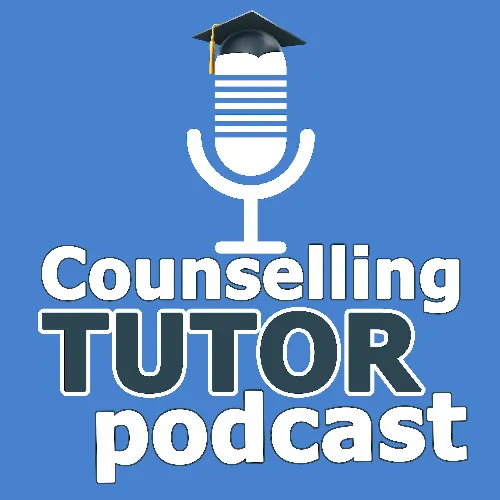132 – Working within Your Competence in Counselling
- Author
- Ken Kelly and Rory Lees-Oakes
- Published
- Sat 30 Nov 2019
- Episode Link
- https://counsellingtutor.com/competence-in-counselling/
Getting an Assignment Referred - Differences between Role Play and Real Play
In episode 132 of the Counselling Tutor Podcast, Ken Kelly and Rory Lees-Oakes talk about the experience of getting an assignment referred. 'Check-In with CPCAB' then focuses on differences between role play (working with made-up scenarios) and real play (working with real situations) in peer work. Finally, the presenters discuss working within your competence in counselling.
Getting an Assignment Referred (starts at 2.15 mins)
Having an assignment 'referred' means getting an assignment that you have submitted back with a request for you to add or change certain parts so that it meets the criteria fully.
Getting an assignment referred can lead to feelings of failure, frustration, anger and self-doubt - especially if the experience keys into old memories of not getting good marks at school.
But the fact is that almost everyone has assignments referred at some point during their training, so don't feel alone if this happens to you.
The most common reason for referral is not having answered the exact question - what you have written may well be of a good quality but if it doesn't exactly address the question, your tutor will be unable to pass it.
Rory's top tip is to look at the verb in the instruction - for example, are you being asked to describe, analyse, evaluate or reflect?
Each of these has a different meaning. It can be useful to look at Bloom's taxonomy in this respect, and you'll find material on this in our Counselling Study Resource (CSR).
Other tips from Ken and Rory here include the following:
Always read the feedback you get on a referred assignment carefully - this should allow you to know exactly what you need to add or change to bring about a pass.
Remember that you won't usually need to rewrite the whole assignment - you may need to add even just a few sentences to get it through.
Come along to the Counselling Tutor Facebook page and share your questions, experiences and struggles with assignments. There, you'll find lots of people (both students and qualified counsellors - and even some tutors) who may be able to offer advice and ideas.
Above all, don't lose heart! You can do this.
Check-In with CPCAB: Differences between Role Play and Real Play (starts at 12.55 mins)
Rory speaks to Heather Price (Senior Counselling Professional) at CPCAB (Counselling & Psychotherapy Central Awarding Body) about the pros and cons of working with fabricated scenarios versus real material in the counselling classroom.
Role Play: Pros and Cons
Potential benefits of role play are that it can teach you about scenarios that may well not otherwise occur in peer practice (e.g. dealing with clients who are very tearful, angry, rude or suicidal - or who won't stop talking, change the subject a lot or bring material that may relate to child safeguarding or other illegal activity).
The most common complaint about role play among counselling students is that it is difficult to fully enter the scenario in an emotional sense.
Heather suggests using the provided scenario as a framework only, calling on your own imagination and emotions to fill in the details and back-story.
Real Play: Pros and Cons
